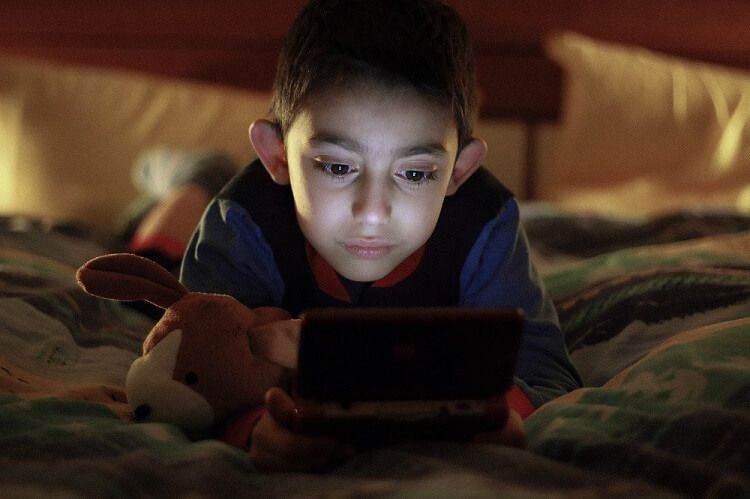Should your kids play video games?
Key points:
- Some worry video games might be addictive, harmful or that they might encourage kids to be violent. Often the issue isn’t video games themselves but how they’re used.
- Video games can have several benefits, such as boosting creativity and problem-solving abilities, helping kids express themselves, and sharpening their spatial skills.
- The key is to set appropriate boundaries to ensure your child has a positive, healthy gaming experience.
Ever wonder if video games are slowly turning your kid’s brain to mush? You’re not alone. Nearly 9 in 10 parents think their teenagers spend too much time playing, according to one survey.
You might worry about the long-term impact video games have, or maybe you’re looking for answers to questions like:
- How much is too much?
- What video games are safe for kids?
- Will video games make my child violent?
Here’s the thing: video games aren’t going anywhere – the vast majority of kids (including 97% of teens) play them every day. But it’s important for parents to set reasonable limits and encourage healthy gaming.
Are video games harmful for kids?
Some argue video games are bad for kids – they’re addictive, they make kids more violent, or they interfere with their attention span, for example.
Let’s look at what the research actually says about some of the most commonly mentioned video game hazards.
Four (possible) negative effects of video games
- Addiction. The World Health Organization made waves when they declared ‘persistent or recurring gaming’ a disorder, though they emphasized only a small percent of children are affected. The American Psychiatric Association, on the other hand, says there’s not enough evidence to declare video game addiction a mental disorder.
- Aggression. There’s some evidence that playing violent games (like first-person shooter games) can increase aggression and decrease empathy, although other factors may come into play. As virtual violence becomes more realistic, it’s understandable to wonder whether it opens a door to violence in the physical world.
However, most evidence suggests any impact on aggression is short-lived. For example, a 2019 study found no significant, long-term difference in kids who played Grand Theft Auto compared to those who didn’t. A 2020 review of 28 studies found no long-term links between aggressive game content and aggression in young people.
One possibility is it’s a classic ‘chicken vs. egg’ scenario. Gaming won’t necessarily turn kids violent, but kids with aggressive tendencies may be drawn to violent video games. That’s not to say all (or even most) kids who play them are prone to real-world violence. But game violence might encourage aggression if a child already has these tendencies.
Bottom line: if you’re concerned about your child’s aggression, whatever the reason, talk to a doctor, therapist or someone who can help. - Academic performance. Video game play can have harmful effects on a child’s performance in school if it starts cutting into homework or study time. But these effects can be mitigated by making sure all their schoolwork gets done first.
- Adverse health effects. Video games don’t normally impact physical health. But they can take a toll if your child starts skipping meals, doing less exercise or missing out on sleep to keep playing.
You might have noticed a recurring theme: the word if. Video games can be harmful if appropriate boundaries aren’t set. It all comes down to what kinds of games your child plays, how they play and how much.

6 surprising benefits of video games
Despite the bad rap they sometimes get, video games can be good for kids, under the right circumstances. For example:
- Video games encourage creativity and problem-solving skills. Especially if they require players to explore and experiment in order to complete objectives, solve mysteries or conquer challenges. Think of the elaborate worlds some players build in Minecraft. Researchers have found that young adults playing Minecraft without being given specific instructions show more creativity when it comes to other tasks.
- They can help kids express themselves. Many games give you the option of ‘modding’ (modifying) – that is, customizing your character’s appearance. For some, this can be a way to showcase their personality and taste. It might even give kids the confidence to express themselves in the physical world.
- Gaming helps kids develop motor and spatial skills. Multiple studies have found video games can improve visual processing – that is, the ability to analyze and recall visual patterns. They can enhance a child’s spatial skills (for example, the ability to organize or make a mental image of a space) and motor skills (the ability to coordinate your body to accomplish something). Gamers make better laparoscopic surgeons than non-gamers. They’re also better at flying drones than conventional aeroplane pilots. Overall, kids who play video games may develop better hand-eye coordination.
- Many kids use video games to develop their social skills. Older generations may see gaming as a solo sport, but kids are more likely to treat it as a shared experience. Whether playing with friends in the same room or online, video games provide a valuable source of connection. This was especially true during COVID-19 lockdowns. One parent in New York described how he and his son turned to basketball video games after outdoor courts were closed. ‘I [found] myself looking forward to our daily (or more) 2k battles to break up the monotony’.
- Some games provide a source of physical activity. While it’s no substitute for outside time, many games encourage kids to get up and move – dance competitions and skateboard challenges, for example. One researcher found some kids learn the basics of a new sport by playing the video game version before picking it up in real life.
- They give parents and kids an opportunity to bond. Playing with your child offers you a chance to connect, tackle challenges, work through setbacks and celebrate triumphs together. According to Dr. Sinem Siyahhan, video games can be a ‘point of conversation, not a point of conflict’. In their book Families at Play, Siyahhan and Elisabeth Gee noted the positive effects of multi-generational video game play, helping parents and kids learn and explore together.

How to set healthy boundaries around video games
Keep things positive with a few simple ground rules:
- Know what games your child is playing. Get to know their video game habits and what kinds of games they like. Make sure the content is appropriate – many countries have a rating system for video games. Pay attention not just to the rating but the reason for it. Discuss what games are allowed based on these ratings.
- Set clear time limits. How much time you allow may vary by age, just as it should for other types of screen time. Have your kids set a timer so they know when to turn the game off. (That also saves you from being the bad guy.)
- Establish clear priorities. Make sure video games are limited to free time – after homework and chores are done. This way, video games can be a reward for getting everything else done.
- Encourage other types of recreation. Make sure your kid gets plenty of time for other activities: playing outside, participating in sports, or just plain exploring. Offer positive reinforcement whenever they choose outside time over video games. (And be sure to join them!)
- Stick to your boundaries. Don’t give into pleas of ‘5 more minutes’ or ‘just one more game!’ Set appropriate consequences for breaking the rules – for example, you could shorten game time by 15 minutes if they don’t get their homework done first. If you catch them playing a game that’s inappropriate, suspend screen time for a day or so. You may want to adjust the rules as they show more responsibility, allowing them a little more game time or expanding the types of games they’re allowed to play.
- Play video games with your kids. Remember, playing along is a great way to stay on top of what they enjoy – and an even better way to bond with them.
By following a few guidelines and setting some healthy boundaries, you can make video games a fun, positive part of growing up.
Want to learn more?
Movember launched Family Man to improve the confidence and mental health of dads.
Learn how to master kick-ass parenting strategies by getting started with Family Man. It’s an interactive parenting video series that's expert-backed and funded by Movember.
If research is your thing take a closer look at the evidence behind Family Man.
Or learn more before diving in.